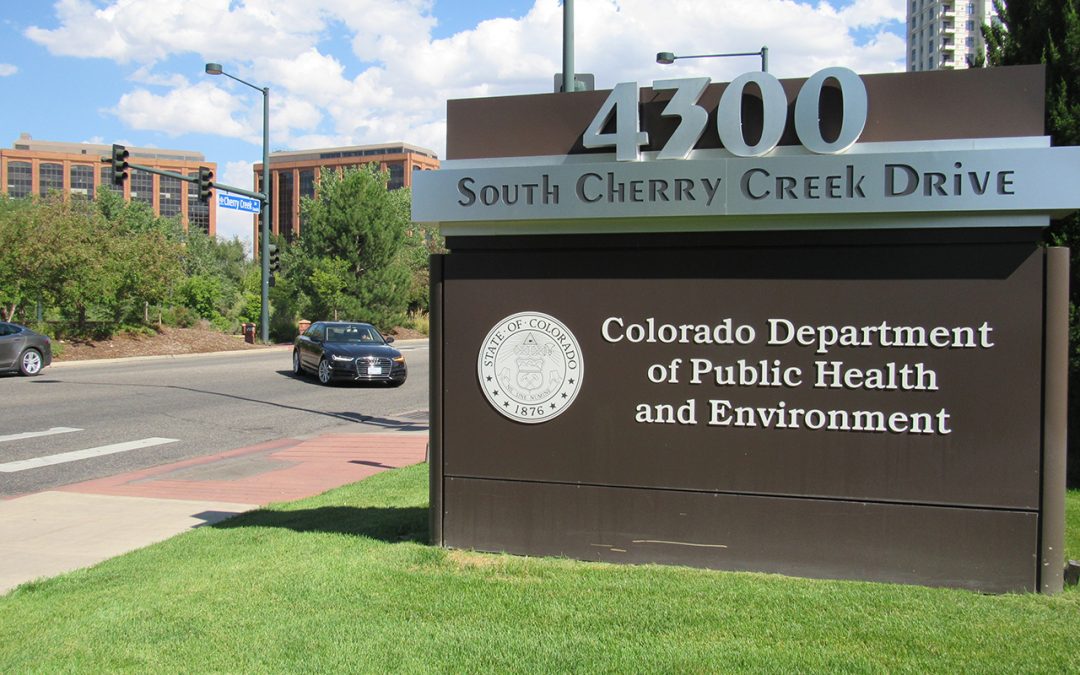Colorado water quality regulators’ attempt to fast-track new rules shielding streams left unprotected by changes to the Clean Water Act was abandoned earlier this month after it failed to win support from lawmakers.
The proposed legislation, never formally introduced, sought to give the state limited authority to review major homebuilding and road projects, among others, that could have harmed streams formerly protected under the Clean Water Act.
But the Colorado Department of Public Health and Environment, after consulting with legislative leaders as well as environmental, water and construction interests, said it could not meet the requirements lawmakers asked of any new legislation proposed during the session, which was cut short by the COVID-19 shutdown.
“Legislative leadership said [any proposed laws] needed to be fast, friendly and free,” said John Putnam, environmental programs director at the CDPHE. “We did a lot of engagement but we did not get to that place that it was going to be perfectly friendly,” he said. “We could not get across the line.”
The CDPHE’s effort drew widespread support from environmental groups and the Colorado Department of Transportation, among others, but it triggered concern among some construction and water interests.
“I thought the issue merited more discussion than was going to be possible during this COVID-compromised session,” said John Kolanz, a Loveland attorney who represents developers and who works on Clean Water Act issues.
Northern Water, one of the state’s largest water providers, said it worked with regulators to try to draft an acceptable bill, but there wasn’t enough time to resolve all the questions the effort generated.
“Other states have taken a year or years to do this,” said Peggy Montaño, Northern Water’s general counsel. “We were trying to get this done in weeks. We could see that it wasn’t going to work. But we intend to continue working with them.”
Only a handful of states have ever sought to assume what’s known as 404 dredge and fill authority, and Colorado officials said they were seeking something less ambitious, regulations that would fill a narrow regulatory gap, rather than the much broader, more complex 404 authority.
“It raises a lot of tough issues,” Kolanz said. “It will be interesting to see where this goes next.”
The 1972 Clean Water Act, among other things, defines which streams and waterways are subject to federal regulation, but those definitions have been fiercely contested in the courts for decades, in part because the United States is home to a wide variety of waterways and wetlands.
Major rivers, such as the Mississippi and the Ohio, carry barge and shipping traffic and are clearly “navigable,” the term early courts used to determine how water would be regulated. If a stream was considered navigable, it was subject to federal law.
But Colorado and other Western states rely on shallow streams that don’t carry traditional commercial traffic. Over the years those streams too became protected by the Clean Water Act, with the Obama Administration issuing a controversial expansion of the act.
Though development and environmental interests have said that a “durable” middle ground must be found to better define protected streams, the political tug-of-war has continued under the Trump Administration, with its officials fighting successfully to roll back measures put in place by the Obama Administration.
Now, under the new Waters of the U.S. rule, or WOTUS, as it is known, thousands of miles of streams in Colorado and other Western states will lose protected status June 22 when the new rule takes effect, with no permitting mechanism to ensure damage to unprotected streams caused by construction and road projects is minimized and repaired.
CDPHE officials are hopeful that a legal challenge issued on May 22 by Colorado Attorney General Phil Weiser to at least temporarily stop the federal rule will be successful, which would give the state more time to design and gain support for its own “Waters of the State” rule.
Putnam said regulators plan to make another effort at the State Capitol next year.
“There was a big push and a lot of time and effort put into this,” Putnam said. “But we just didn’t have the time to get it done.”
Jerd Smith is editor of Fresh Water News. She can be reached at 720-398-6474, via email at jerd@wateredco.org or @jerd_smith.
Fresh Water News is an independent, nonpartisan news initiative of Water Education Colorado. WEco is funded by multiple donors. Our editorial policy and donor list can be viewed at wateredco.org


 Print
Print